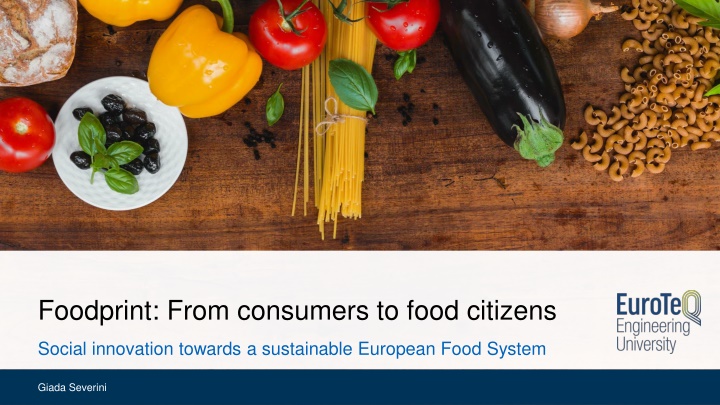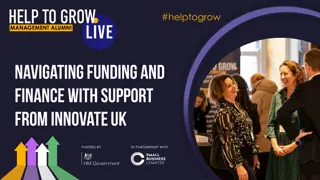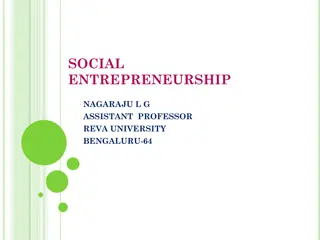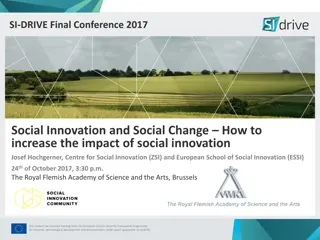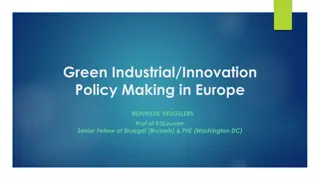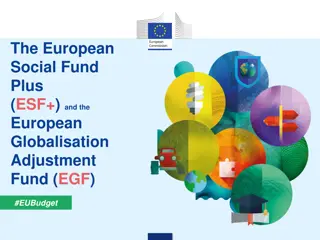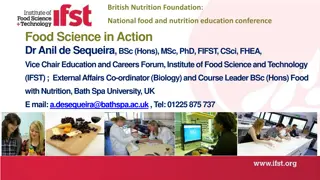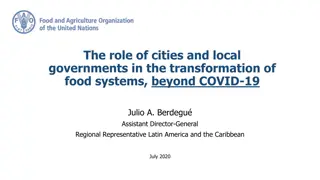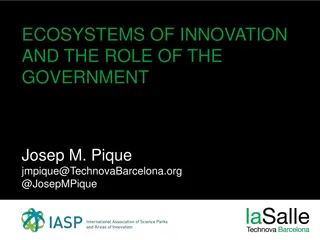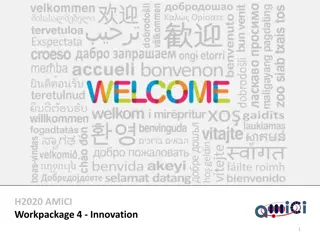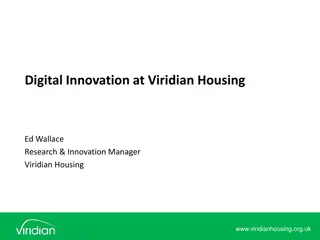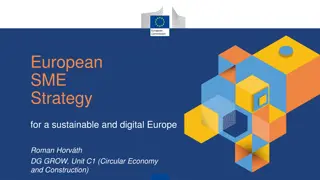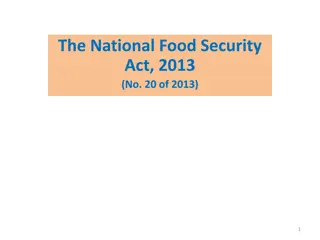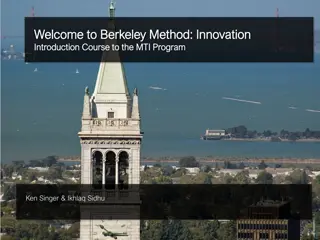Foodprint: Transforming European Food System Through Social Innovation
The European food system is at a breaking point, with highly unsustainable diets and disconnected consumers. The EU's Farm to Fork Strategy calls for a shift towards more sustainable diets, advocating for societal awareness and engagement. The Foodprint approach aims to foster social innovation by increasing food awareness among European youth and encouraging unconventional food education. Through initiatives like empowering Mensa QR-code installations, the goal is to empower individuals to understand, reflect on, and shape their Foodprint. Ultimately, the vision is to create a world where people are not just consumers but food citizens contributing to a fair, democratic, and sustainable food system.
Download Presentation

Please find below an Image/Link to download the presentation.
The content on the website is provided AS IS for your information and personal use only. It may not be sold, licensed, or shared on other websites without obtaining consent from the author.If you encounter any issues during the download, it is possible that the publisher has removed the file from their server.
You are allowed to download the files provided on this website for personal or commercial use, subject to the condition that they are used lawfully. All files are the property of their respective owners.
The content on the website is provided AS IS for your information and personal use only. It may not be sold, licensed, or shared on other websites without obtaining consent from the author.
E N D
Presentation Transcript
Foodprint: From consumers to food citizens Social innovation towards a sustainable European Food System Giada Severini
What is going on in the European food system? The global food system is broken European standard (highly processed & animal-based) diets are highly unsustainable Consumers are disconnected from food, its production and impact What does the EU say? Farm to Fork Strategy Call for societal awareness and engagement with food system A shift to low-processed plant-based diets is needed But.. How? Food is not rational: Top-down, market based approaches perform poorly (ex: meat-tax) Most food information we are exposed to is advertisement People are relegated to the role of consumers, have no say in shaping the food system Thursday, 19 September 2024 Giada Severini
The Foodprint approach Purpose Foster bottom-up social innovation towards more sustainable diets How? increase food awareness among European youth foster food education in new, creative and unconventional ways Vision A world where people are connected to the food they eat, the way it is produced and the impact it has on the environment and on others. A world where people are not mere consumers, but food citizens contributing to shape a fair, democratic and sustainable food system. Foodprint is not an organisation yet But.. It could be soon! The team working on the Challenge could outlive the EuroTeQ Possible integration within Plant a Seed Thursday, 19 September 2024 Giada Severini
Foodprint: Where do we want our foodsteps to lead? Food waste as.. Inconsiderate and inefficient use of resources (e.g., diets largely based on unsustainable foods) Careless consumption of food, without awareness of its value Waste-Challenge: Finding innovative solutions to empower people to understand, reflect on and shape their Foodprint. Develop a scalable and flexible package of initiatives, tools and interventions to implement to foster food education and awareness among Munich university students. Proposal: Design an Empowering Mensa QR-code installations in strategic points (e.g. waiting line) app linked to a calculator to track the own Foodprint (including positive reinforcement mechanisms) sustainability scores for foods served and displayed along with nutritional information However, many other initiatives in the university, online and in Munich are possible! Category of the Challenge: Consumption Giada Severini
Foodprint: Where do we want our foodsteps to lead? Desired Impact: Skills needed/recommended: Students make more informed and sustainable food choices The concept could be extended to other EU universities and public institutions Increased societal engagement with the food system Food citizens define where they want their foodsteps to lead Highly interdisciplinary character: from developing technical tools (e.g., Foodprint calculator) to design and societal analysis Highly open-ended: creativity, flexibility, open-mindness, critical thinking, problem-solving attitude, respect, empathy Relevant considerations for the challenge/theme: Attitude & Communication: non-judgemental, positive and empowering Focus on gain framing, avoiding the rethoric of restriction Creative ways of educating and informing Explore synergies with stakeholders Category of the Challenge: Consumption Giada Severini
Would you like to? Contribute to a transition to a more sustainable food system? Address urgent needs in the European Union? Work on an interdisciplinary Challenge? Bring your own ideas with total freedom? Then join the Foodprint Challenge! (And.. If you are not convinced yet.. You should know that homemade Italian food will be part of the adventure!) Category of the Challenge: Consumption Giada Severini
Thank you! Any question, comment, idea? Contact me anytime: foodprintchallenge2022@gmail.com Category of the Challenge: Consumption Giada Severini
